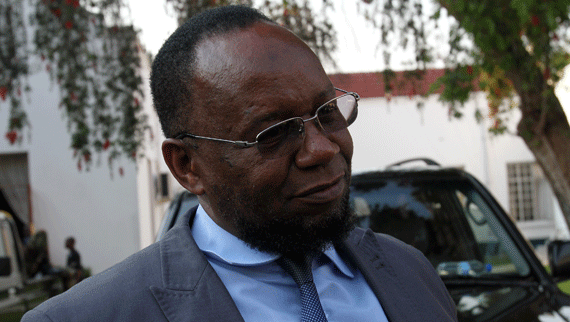
ZIMBABWE is set to second an unspecified number of English and science teachers to war-torn South Sudan in a 12-month exchange programme.
NQOBILE BHEBHE CHIEF REPORTER The deal was agreed by Primary and Secondary Education minister Lazarus Dokora in the oil-rich country earlier this week where he met with his counterpart John Gai.
The two countries forged bilateral ties with several Zimbabwean business communities embarking on investment exploration trips to South Sudan.
The young country attained independence in July 2011 after its citizens, who are mainly Christian, overwhelmingly voted for separation from the Moslem north in a referendum necessitated by a 2005 peace deal.
The accord ended over two decades of a bloody civil war between the north and the south.
Online publications quoted Dokora yesterday saying English and science teachers would be the first to participate in the programme.
“We think that there will be a scope for collaboration between South Sudan and Zimbabwe in the area that I lead in my country,” Dokora said.
He said the teachers would be able to teach for as long as 12 months, without elaborating on when the programme would commence.
- Chamisa under fire over US$120K donation
- Mavhunga puts DeMbare into Chibuku quarterfinals
- Pension funds bet on Cabora Bassa oilfields
- Councils defy govt fire tender directive
Keep Reading
South Sudan adopted English as the language of instruction in schools and public offices after declaring independence.
However, Dokora recently told the Bulawayo Zanu PF leadership that there was a critical shortage of trained mathematics and science teachers in the country, with more than 1 500 vacant posts.
Dokora said he hoped more teachers would be trained in the next three years to address the problem.
The shortage of maths and science teachers is prevalent in all the country’s 10 provinces.
Matabeleland and the Midlands provinces are the hardest hit, with vacancy rates of more than 55%.
The flight of skilled maths and science teachers to neighbouring countries in search of better pay and working conditions has further compounded the problem.
In 2013, both countries signed an agreement for the establishment of a joint commission focussing on several areas, including economic, cultural, scientific and technical spheres.
South Sudan expressed interest in co-operating with Zimbabwe in the development of human resources.










